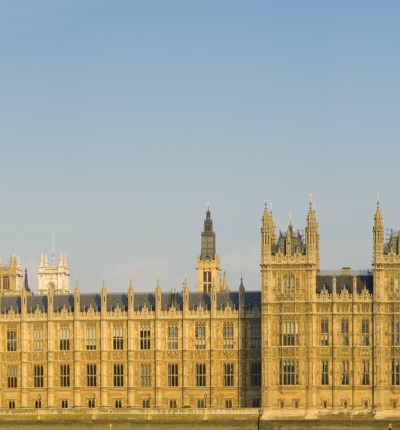
Cabinet Office facing legal challenge over Census 2021
The Sikh Federation (UK) has been granted permission by Mr Justice Lewis for a full Judicial Review hearing in the High Court, expected to take place in October 2020.
Posted on 09 July 2020
The case is brought by Amrik Singh Gill, Chair of the Sikh Federation (UK) and has the support of over 150 Gurdwaras and Sikh organisations.
The Federation argues that the decision to exclude a tick box option for Sikh ethnic origin in the forthcoming 2021 Census is based on legally unsustainable reasoning and is therefore unlawful.
In their legal case they claim that the ONS failed to apply its published evaluation criterion on “public acceptability” to its assessment of whether to include a Sikh ethnic group tick box, and failed to apply it consistently across the questions/response options considered for inclusion in the 2021 Census.
In addition, the group argue that the ONS unlawfully relied on a report by external research agency Kantar, which applied a different evaluation criteria to that promised by the ONS, and which the group say displays inconsistencies and inaccuracies. The court is being asked to quash the Census (England and Wales) Order and the Census Regulations for England and Wales.
In 2011, the UK-wide Census recorded approximately 430,000 Sikhs based on a non-mandatory question about religion. However, not all people who would identify as ethnically Sikh identify as religiously Sikh.
The Sikh Federation’s own estimate based on engagement with their community is that there are approximately 700-800,000 ethnic Sikhs in the UK.
The Sikh Federation (UK) first commenced judicial review proceedings in May 2019 as they did not wish to cause any delay to the census. All parties have supported expedition of the proceedings on this basis.
Permission for a judicial review challenge was first granted in September 2019, but the full claim was then dismissed by Mrs Justice Lang in December on the basis it was premature to bring the challenge before the draft Order had been laid before Parliament. No findings were made as to the substantive issues of the claim at that time.
The court will now consider that full claim and those substantive issues because the Census (England and Wales) Order 2020 was presented to Parliament in March 2020 without a Sikh-ethnic tick-box response option. Cross-party support was received for a Sikh-ethnic tick-box during the virtual debate in Parliament in May. However, the virtual Parliamentary process did not allow for any amends or annulment to the draft Order and it was approved on 20 May 2020.
Bhai Amrik Singh, the Chair of the Sikh Federation (UK) said:
“We are delighted we have been granted permission for a hearing in the High Court and are confident we have the evidence and arguments to win the case.
“Ministers must accept we are seeking a separate Sikh ethnic tick box in the census as that is the only practical way to get 40,000 public bodies to collect information on Sikhs to ensure equal opportunities and address discrimination.
“The Cabinet Office need to admit the ONS have not followed their own processes, ignored the evidence and made many mistakes.
“The Cabinet Office need to do some serious thinking in the next few weeks on the merits of our case for a Sikh ethnic tick box response option. A decision declaring the process unlawful would seriously damage their public reputations. The uncertainty and delay also has significant financial and practical implications.”
Rosa Curling, from law firm Leigh Day who represents the Sikh Federation, together with Erin Alcock, added:
“Our client’s concerns about the lack of an ethnic Sikh tick-box on the 2021 Census have not changed. The concerns they raised over flaws identified within the process for determining whether or not to include a Sikh ethnic tick-box have not been addressed by the courts to date.
"Our clients continue to argue that without a Sikh ethnicity tick-box on the next census, the Sikh community will continue to be at a disadvantage in relation to the allocation of public resources.”
Ayesha Christie and David Wolfe QC of Matrix Chambers are counsel instructed in this case.

